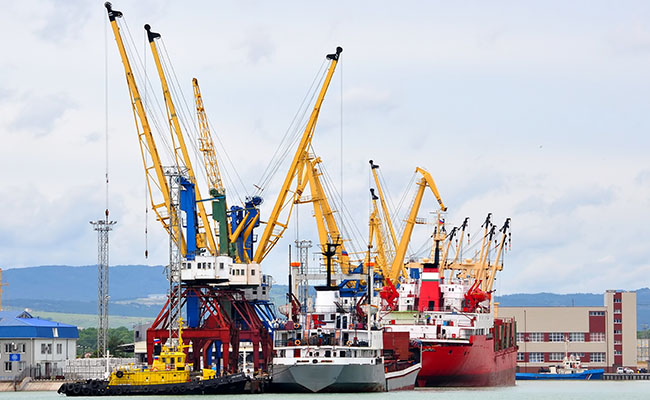
India, Bangladesh to enhance bilateral trade through coastal shipping
India and Bangladesh have agreed to operationalize their bilateral agreement on coastal shipping, which will enable the two countries to save logistics costs of export and import. The Standard Operating Procedure (SOP) agreement was signed in New Delhi on Sunday between the Joint DG (Shipping) from Indian side and Chief Engineer and Ship Surveyor, Department of Shipping, Bangladesh. The coastal shipping agreement was signed between the two countries in June this year. India’s Shipping Minister Nitin Gadkari who was present during the signing of SOP said that once it is operational, the agreement will enable a huge saving in logistic costs of EXIM (export-import) transport between the two countries. “The SOP has been framed as per the terms and conditions of the agreement on coastal shipping and both India and Bangladesh have agreed to its provisions,” a statement from the Ministry of Shipping said. The move will pave the way to promote coastal shipping between India and Bangladesh and enhance bilateral trade by bringing down the cost of transportation of EXIM cargo. As part of the agreement, India and Bangladesh will give equal treatment to each other’s vessels used in international sea transportation. The two sides have also agreed upon the use of River Sea Vessel (RSV) for Indo-Bangladesh coastal shipping. The two sides are holding a secretary-level talk on Monday, which will cover issues related to agreements on passenger and cruise vessel movement, discussion on the protocol to operationalize the MoU on use of Mongla and Chittagong ports. India and Bangladesh already have a bilateral Protocol on Inland Water Transit and Trade (PIWTT) for operation of vessels on the routes between river ports of Haldia, Kolkata, Pandu, Karimganj and Silghat in India and Narayanganj, Khulna, Mongla, Sirajganj and Ashuganj in Bangladesh. This protocol has facilitated the movement of EXIM trade as well as cargo bound for the northeastern states of India. “Out of a total of 1.8 million tonnes of cargo moved on Indo-Bangladesh protocol route during 2013-14, about 98% is fly ash which is transported from Kolkata to various river ports in Bangladesh,” the ministry said. Rapid growth in bilateral trade has led to congestion on the road at Indo-Bangladesh border and at the Land Custom Stations/integrated Check Posts. “The traffic congestion at “Petrapole” and “Benapole” on the Bangladesh side has emerged as one of the biggest impediments to the movement of EXIM cargo. Due to such congestion, the exporters/importers on both sides have been facing undue increase in the transportation cost,” the statement said. At present, Indian vessels has connectivity through sea route with Bangladesh through ports of Colombo and Singapore. The long sea route adds to the transportation costs of EXIM trade. Smaller ships can provide direct connectivity between eastern sea ports of India and Chittagong and other ports in Bangladesh. This will also provide competitive freight rates. Non-availability of River Sea Vessel is the biggest impediment in commencing coastal shipping between India and Bangladesh. The existing Bangladeshi vessels are not cost-effective for coastal voyage between the two countries. Once the agreement comes into effect, the deep draft ports on the eastern coast of India can be ‘hub ports’ for the onward transportation of cargo to Bangladesh via the coastal mode through RSV category of vessels. Besides, Indian ports serving as trans- shipment ports for Bangladesh cargo will benefit with enhanced throughput as a result of Indo-Bangladesh coastal trade.
November 16, 2015 |1 2:56pm IST







 to success.
to success.